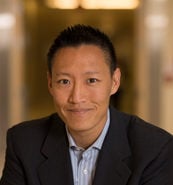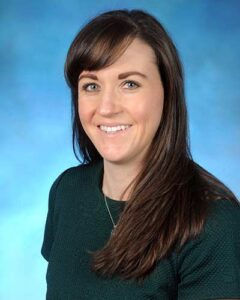
ASE Surgical Education Research Fellowship
Since its founding in 1980, the goals and the activities of the ASE have been predicated on seeking and promulgating educationally and scientifically sound answers to the many complex questions, issues and concerns that are integral to the advancement of surgical education. In 1993, the ASE established the Surgical Education Research Fellowship (SERF) in alignment with the goals of ASE.
The Surgical Education Research Fellowship program (SERF) is a one year, home-site fellowship designed to equip investigators with the skills and knowledge needed to plan, implement and report research studies in the field of surgical education. Following acceptance into the SERF program, each fellow is carefully matched by the program’s faculty with a SERF Advisor, a respected and knowledgeable researcher who will serve as the fellow’s mentor and consultant on their particular project.
Tuition is $3,000 and is paid by the fellow’s home institution. Travel and accommodations are not included in the cost of tuition.
Apply for SERF!
Applications open on Tuesday, October 14 at 9:00 am Pacific and close on Thursday, January 15, 2026 at 11:59pm Pacific.
There are numerous benefits to participating in this prestigious fellowship. The primary benefit is that this unique fellowship affords the opportunity for motivated individuals to become proficient in a skill set highly valued by their home institutions as well as the field in general. As new knowledge relevant to surgical education is the key to the growth and development of the discipline, those educators with the requisite, specialized skills and credentials become important members of departments and institutions that are committed to securing leadership and prominence in the field.
In addition, through working with their SERF Advisor and meeting with other SERF participants, fellows establish an invaluable, life-long network of colleagues who share their career aspirations and interests.
SERF BROCHURE
What are the SERF Program Objectives?
The Surgical Education Research Fellowship (SERF) program is designed to equip individuals with the skills and knowledge needed to plan, implement, and report educational research studies.
Upon completion of the program, fellows are able to:
- Apply methodology to access and review education literature
- Formulate original and significant research questions.
- Design an educational research project using appropriate methodologies.
- Manage a surgical educational research project.
- Organize presentation of completed educational research projects for peer-reviewed academic publications and/or conferences.
- Develop a network of surgical education research colleagues.
Who Should Apply?
Members of the Association for Surgical Education who are interested in pursuing educational research. Junior faculty and residents with dedicated research time are encouraged to apply.
For more information on becoming a member of the Association for Surgical Education, visit here.
Application Process & Cost
Applicants must complete the online SERF Application Form and submit it with required attachments. Course tuition is $3,000. Travel and Lodging not included. The application system will open in fall and the deadline to apply is January 15, 2026. Applicants will be notified of their acceptance to the program by February 2, 2026.
Surgical Education Research Fellowship Graduates
For more information about current fellows, graduates and their projects visit here.
What are the Fellowship Requirements?
I. Attend four sessions:
Session 1
Monday, April 27, 2026
8:00 AM-5:00 PM
during the ASE Annual Meeting
Atlanta, GA
Session 2
Tuesday, April 28, 2026
8:00 AM-12:00 PM
during the ASE Annual Meeting
Atlanta, GA
Session 3
Friday, October 9, 2026
Virtual
7 am – 3:00 pm PST
8 am – 4:00 pm MST
9 am – 5:00 pm CST
10 am- 6:00 pm EST
Session 4
Friday, April 2, 2027
1:00-4:00 PM
SERF Forum during ASE Annual Meeting
San Antonio, TX
II. As a result of your SERF project, submit an abstract (e.g. poster, oral, podium, forum) to a conference or submit a manuscript to a peer-reviewed journal. Submission must be approved by the SERF Advisor.
III. Present research progress report at the SERF Forum Friday, April 2, 2027 during the ASE Annual Meeting in San Antonio, TX.
IV. Workshop attendance and presentation at SERF Forum. Research projects must be completed within three years of the program start date.
Letters of notification regarding course acceptance will be emailed by February 2, 2026.
Who are the SERF Faculty?
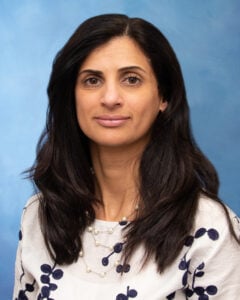
Gurjit Sandhu, PhD
SERF Program Director
Professor
Director, Center for Surgical Training and Research (CSTAR)
Departments of Surgery & Learning Health Sciences
University of Michigan
Dr. Gurjit Sandhu is a Surgical Education Scientist and Professor in the Department of Surgery and in the Department of Learning Health Sciences at the University of Michigan. She also serves as the Director for the Center for Surgical Training and Research (CSTAR) in the Department of Surgery at the University of Michigan. Additionally, she is a University of Michigan Trained Executive Coach.
Dr. Sandhu was inducted as an Affiliate Member of the ACS Academy of Master Surgeon Educators. Her research focuses on the scholarship of teaching and learning, specifically looking at intraoperative entrustment, interpersonal interactions, and the clinical educational environment. Dr. Sandhu also uses her strengths as a qualitative researcher to support her work on social accountability in medical education, health equity and disparities, and physician well-being.
Dr. Sandhu is an Associate Editor for Global Surgical Education – Journal for the Association of Surgical Education and for the Journal of Graduate Medical Education.
Michael Kim, MD, MA, FRCSC, FACS
SERF Associate Program Director
Associate Professor
Department of Surgery
University of Alberta
Dr. Michael Kim is an Associate Professor in the Departments of Surgery and Critical Care Medicine at the University of Alberta. He is also the Program Director for the Acute Care Surgery Fellowship. Michael completed a Master of Arts while a Surgical Education research fellow at Southern Illinois University. His thesis project was a randomized control trial of technical skills training in the simulation laboratory. During this time he also participated in development and validation of operative assessments for the American Board of Surgery as well as simulation curricula for the American College of Surgeons.
After his surgical residency at the University of Rochester, he completed clinical fellowships in Trauma and Acute Care Surgery as well as Critical Care at the University of Toronto. He then became a research fellow at the Wilson Centre for Health Professions Education. Michael’s research interests are primarily in workplace-based assessment and feedback. His background covers both experimental and qualitative research methodologies. He has served as Chair of the Education Research Committee as well as the Assessment, Curriculum, and Evaluation Committee for the Association for Surgical Education. He is currently also a member of the Committee for Diversity, Equity and Inclusion. In addition, he is co-leading a new project on Best Practices in Surgical Education as well as serving as an Associate Editor for Global Surgical Education
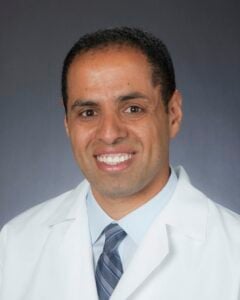
Adnan Alseidi, MD, EdM
SERF Faculty
Professor of Clinical Surgery
Vice Chair for Education, Department of Surgery
University of California, San Francisco
Adnan Alseidi, MD, EdM, is Professor of Clinical Surgery and Associate Dean for Assessment, Improvement, and Accreditation at the University of California, San Francisco (UCSF).
He is a HPB and Endocrine surgeon specializing in surgical care for conditions involving the liver, bile duct, pancreas, and endocrine system. He has particular interests in minimally invasive techniques, spleen preservation techniques, and surgery for patients with locally advanced pancreas cancer.
Dr. Alseidi’s research focuses on surgical education, minimally invasive surgical techniques, and methods to improve patients’ outcomes with liver, pancreas, and biliary cancers. He has received grants to create registries for minimally invasive pancreas and liver surgeries as part of an international collaboration with studies focusing on improving patient outcomes. He also studies deep learning networks and artificial intelligence to enhance patient care during surgery and minimize postoperative complications. His research has resulted in the publication of hundreds of peer-reviewed articles, many invitations to present as Visiting Professor, as well as at national and international conferences.
Dr. Alseidi holds many national and international positions to include being the Past President of The Fellowship Council (FC), a Past President of the Association for Surgical Education (ASE), immediate past Chair for training and education for HPB surgery for the Americas Hepato-Pancreato-Biliary Association (AHPBA) and the Society of American Gastrointestinal and Endoscopic Surgeons (SAGES).
A graduate of UC Santa Barbara, and Pennsylvania State University Medical School, Dr. Alseidi completed his general surgery residency at the University of Illinois at Chicago. Following graduation from residency, he served as a surgeon in the US Navy and as a Co-director of the Surgery Department at the US Naval Hospital in Okinawa, Japan. Dr. Alseidi completed an HPB and advanced GI fellowship at Washington University in St. Louis, MO and earned a master’s degree in surgical education at Southern Illinois University/University of Illinois-UC. Before joining UCSF, Dr. Alseidi was an attending hepatopancreatobiliary (HPB) and endocrine surgeon at Virginia Mason Medical Center in Seattle, WA (2011-2020) where he held the roles of Director of the HPB Clinical Fellowship, Surgical Simulation Training, and Associate Program Director of the general surgery residency.
Rebecca Brown, MD
SERF Faculty
Dr. Rebecca Brown is a colorectal surgeon in Baltimore, MD with particular clinical interested in Inflammatory Bowel Disease (IBD) and minimally invasive (robotic and laparoscopic) approaches for management of colorectal diseases.
Dr. Brown graduated from the University of New Mexico prior to completing her medical degree at the University of New Mexico School of Medicine. She completed her general surgery residency at the University of North Carolina Chapel Hill and a fellowship in colon and rectal surgery at St. Joseph Mercy Ann Arbor/University of Michigan. She worked at the University of Maryland from 2020-2025. At UMMS, she served as the Associate Program Director for the general surgery residency and also founded a multidisciplinary robotic surgery training program for general surgery, thoracic, urology and OB/GYN residents. She is looking forward to joining a new practice at Mercy Medical Center in the upcoming year.
Dr. Brown’s research interests include clinical outcomes research in colon and rectal surgery and surgical education. Her SERF project centered on evaluating perceptions of the learning environment during the surgical clerkship to help identify trends in maligned perceptions and also identify areas for protentional improvement in this high stakes environment. She is also leading a project on Imposter Syndrome thought the ASE Graduate Surgical Education Committee (GSEC), where she serves as Vice Chair.
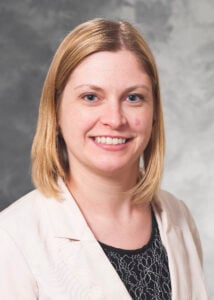
Sarah Jung, PhD
SERF Faculty
Associate Professor
Department of Surgery, UW-Madison
Dr. Sarah Jung is an Associate Professor in Education Research and Development in the Department of Surgery at the University of Wisconsin-Madison and is Director of the Collective for Innovation, Scholarship, and Research in Undergraduate Medical Education (CISR-UME) at the UW School of Medicine and Public Health. She has a Masters and PhD in educational psychology with a focus in learning science, the study of how people learn. Her research and academic interests focus on developing learner-centered training environments and studying how perceptions of and experiences in those environments influence learning trajectories in medical education. Her current work centers on investigating how discrimination and systemic inequities experienced in the clinical environment impact education, advancement, and career satisfaction of health professionals.
Dr. Jung is currently the Secretary of the Association for Surgical Education Foundation (ASEF) and is actively involved in the Association for Surgical Education (ASE), for which she is the current Chair of the Membership committee. She is also on the editorial boards of Global Surgical Education – Journal for the Association of Surgical Education, Annals of Surgery Open and The American Journal of Surgery.
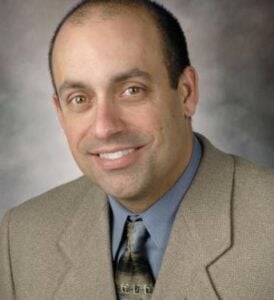
Ross Willis, PhD
SERF Faculty
Professor
Director of Surgical Education
Departments of Surgery and Medical Education
University of Texas Health Science Center San Antonio
Dr. Ross Willis is a Professor, Director of Surgical Education, and Director of the Johnson Center for Surgical Innovation simulation training center in the Departments of Surgery and Medical Education at UT Health San Antonio. He has a PhD in cognitive psychology with a focus on learning, memory, instructional design, and education science. His areas of research include simulation-based learning and assessment, optimizing the learning environment using individual aptitudes, and coaching.
Dr. Willis is the ASE Recorder and serves as a guest associate editor of Global Surgical Education – Journal for the Association of Surgical Education. He is also a member-at-large of the Association for Surgical Education Foundation board and is on the editorial board of the Journal of Surgical Education.
Apply for SERF!
For any questions, please email Suzanne Quon at info@surgicaleducation.com.

